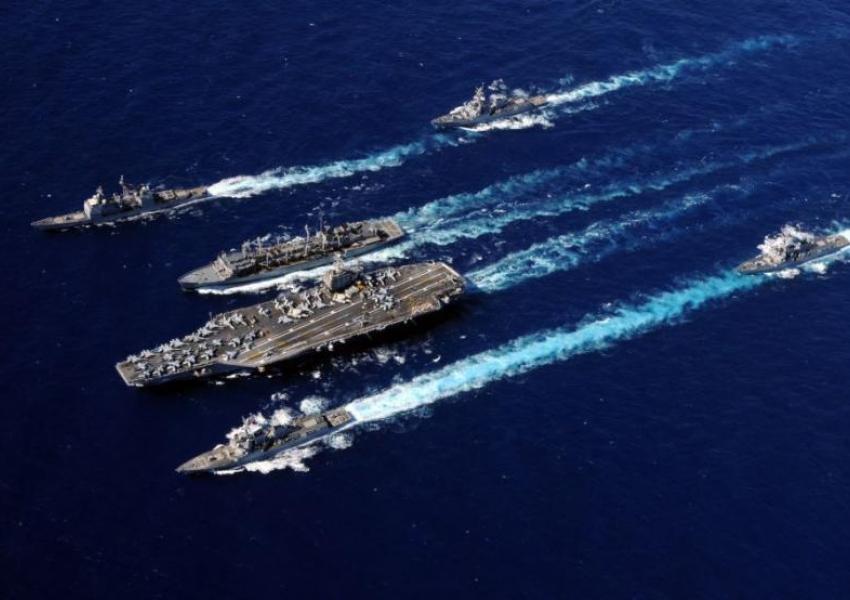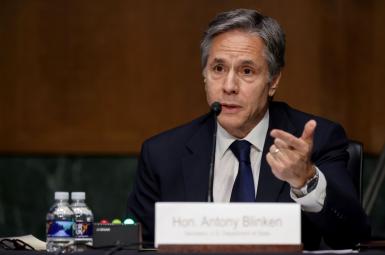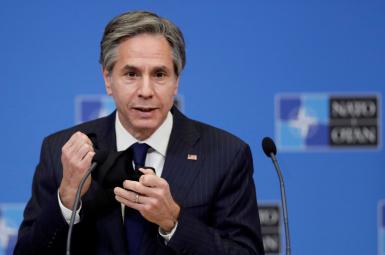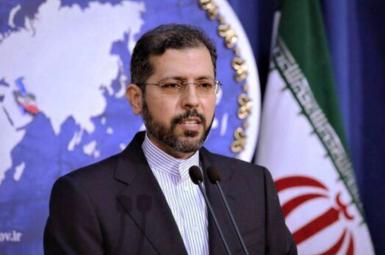
Will There Be A Military Escalation With Iran In Trump’s Final Weeks?
Citing Iraqi officials, Associated Press has reported from Baghdad that Iran has instructed allies across the Middle East not to provoke the United States in the final weeks of the Trump administration. A ‘high alert’ warning was delivered this week by Esmail Ghaani, head of Iran’s Quds Force.
With his court challenges to the US presidential election floundering, President Donald Trump has barely appeared in public and is becoming more unpredictable as the inauguration of President-elect Joe Biden looms on January 20. The New York Times reported on November 17 that Trump had been talked out of attacking Iran’s nuclear facilities. Just days after the November 3 election, Trump “terminated” Defense Secretary Mark Esper.
On Thursday [November 19], an adviser to Iran’s supreme leader warned in an Associated Press interview that any American attack on Iran could provoke a “full-fledged war” in the region. “We are not after starting a war,” said Hossein Dehghan, a former defense minister and ex-officer in the Revolutionary Guards.
While Trump has announced troop withdrawals from Iraq and Afghanistan before mid-January − to 2,500 each, from 3,000 in Iraq and 4,500 in Afghanistan – the US retains wide options for military strikes. Trump officials claim their latest sanctions on Iran will stymie Biden in efforts to re-enter Iran’s 2015 nuclear deal with world powers, a deal Trump abandoned in 2018 and for which he harbors deep distaste as the work of predecessor President Barack Obama.
Iraq is a perennial flashpoint between the US and Iraq. In January, Trump authorized a missile attack that killed Iranian general Qasem Soleimani, Iraqi militia leader Abu Mahdi al-Muhandis, and nine others. The Trump administration threatened in September to close the US embassy unless the Iraqi government stopped insurgents’ attacks.
Just hours after Ghaani delivered Iran’s message in Baghdad − while he was still in Iraq − Katyusha rockets were fired at the fortified Green Zone, which houses the US embassy, killing a child and wounding five civilians.
While the murky world of armed Iraqi politics can offer Tehran ‘plausible deniability’ it also contains factions with diverse motives including financial gain and revenge. The Katyusha attack was claimed by an obscure militia, Ashab al-Kahf, believed to have links with Kataib Hezbollah, whose leader Abu Mahdi al-Muhandis died alongside Soleimani.
For the Trump administration, Elliot Abrams, US Special Representative for Iran and Venezuela, stressed the impact of tightening Iran sanctions in an Al-Arabiya television interview on Friday. Implicitly recognizing the demise of the Trump administration – although Trump still refuses to acknowledge the US election result – Abrams suggested that returning to the 2015 nuclear deal and abandoning the “leverage” of Trump’s sanctions would be “very unfortunate for the United States and for all of our friends and partners in the region.”
Abrams warned “Iran and its proxies” they would be “sorry” for any “military activities and terrorist activities that kill Americans.” He was speaking after a trip to Israel, Saudi Arabia and the United Arab Emirates.
Also counting off the days until January 20, Hassan Nasrallah, leader of Lebanon’s Hezbollah, warned followers earlier this month to be “be on high alert in these next two months so that it passes peacefully.” He told them to be ready for “any danger, aggression or harm” and that Hezbollah would respond “if the US or Israel’s follies go that far.”








